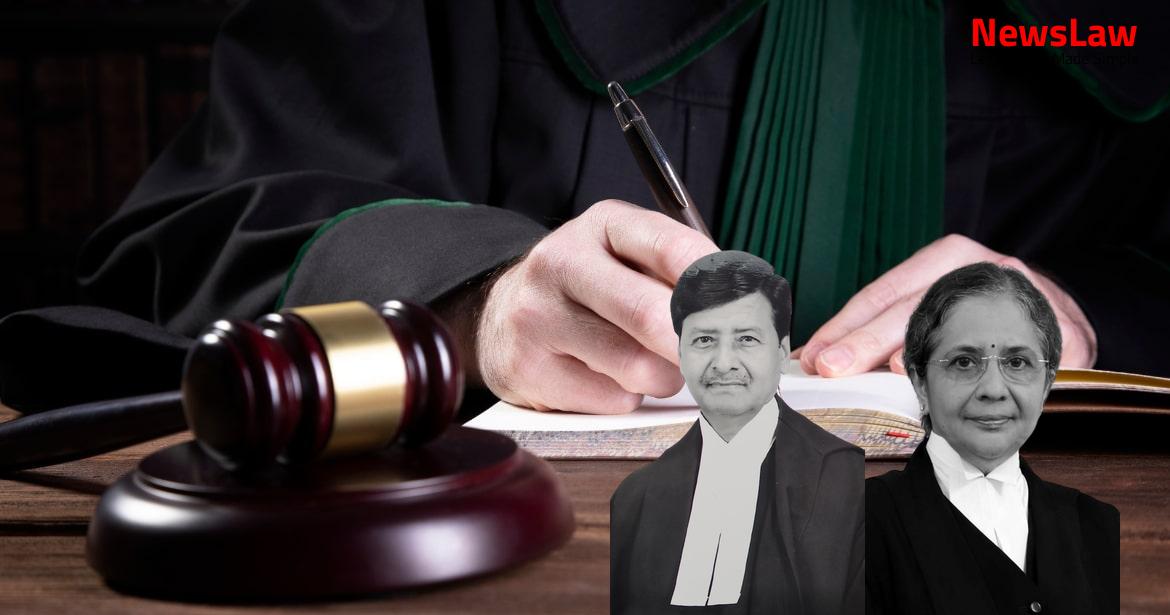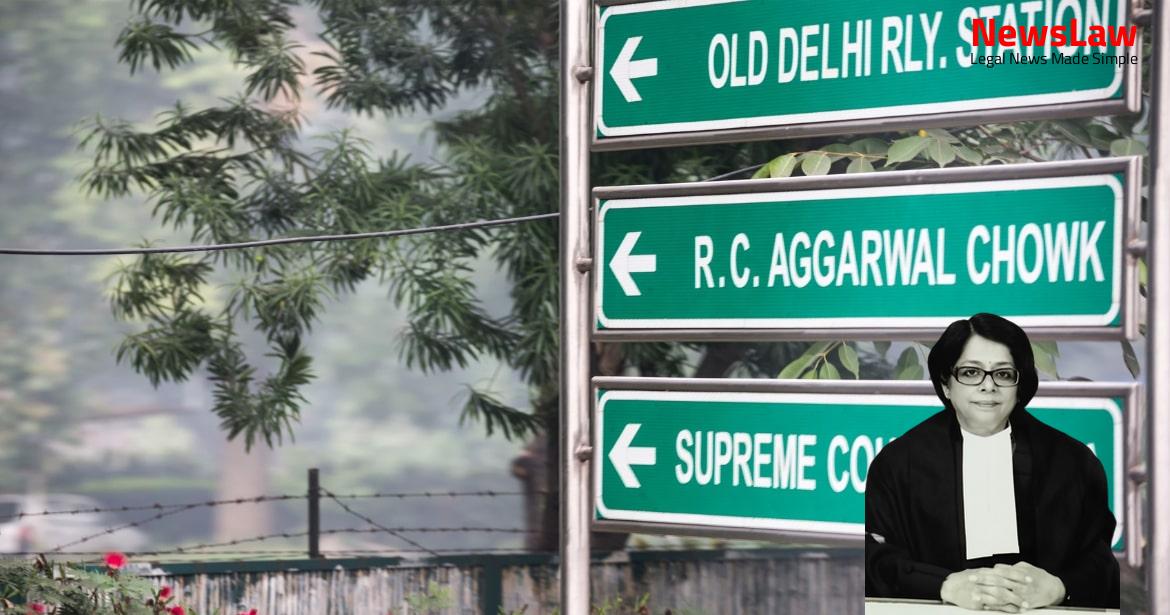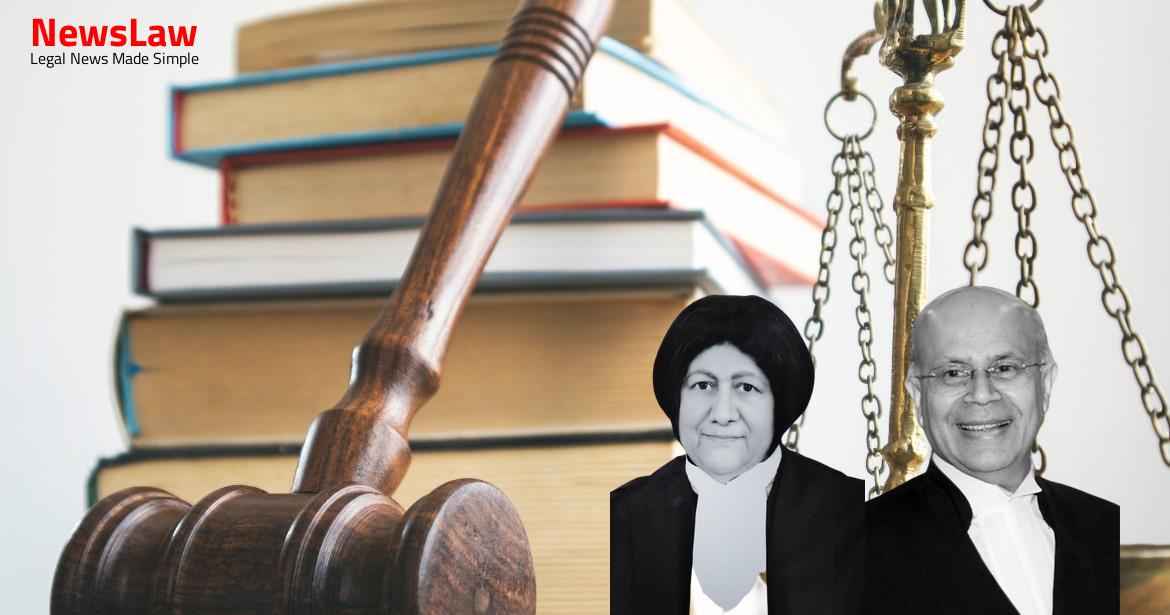The dispute relates to House No.189, Mohalla Madia, Kanpur Road, Jhansi, which as per the complainant, was purchased in the name of Shravan Kumar Gupta, who was minor at that time, by means of a registered sale deed dated 4 May, 1977 and through the ostensible owner, the de-facto complainant purchased the property by registered sale deed dated 22 December, 2018, but prior thereto, a family settlement took place in the family comprising of Ram Kumari, widow of Raja Ram Gupta and her four sons, namely, Ramesh Chandra Gupta, Ashok Kumar, Shravan Kumar and Vinod Kumar and a Memorandum of Understanding(MOU) was executed between the parties on 19 August, 2006 and in terms of the aforesaid MOU, the house came in the share of Vinod Kumar Gupta and while the Original Suit No.91 of 2015 filed at the instance of Vinod Kumar Gupta was pending adjudication, the ostensible owner Shravan Kumar Gupta executed a registered sale deed dated 22 December, 2018 in favour of the de-facto complainant and according to the informant/second respondent, who is the vendee of the afore- mentioned registered sale deed, possession by title in favour of 3 Shravan The complaint on which FIR was registered is reproduced hereunder: “The Police Inspector, Navabad Jhansi Subject: Regarding put up a lock of the house of the applicant and after grabbing the same demanding of Rs.
Also Read: https://newslaw.in/case-type/civil/regularization-of-village-level-workers-in-tamil-nadu/
When on 15.02.2019 at 2 pm I entered in the house then in the house Vinod Kumar, his nephew Ashish Kumar S/o
Ashok Kumar and Ramesh Chandra Gupta S/o
Raja Ram were sitting in the house and I was thrown by them by pushing and used the filthy language and stated that if you come inside the home we will kill you. I have come to know that a case was filed by Vinod Kumar before Civil Judge, CD bearing No.OMS/91/2015 regarding the partition of the shop and house of his brother Shwrawan Kumar and during the pendency of the case, Vinod Kumar sold his shops vide a sale deed to some other person and against the shops which are required to be given to Shrawan Kumar, Shrawan Kumar sold his property to me vide a registered sale deed. Learned counsel for the appellants submits that the present is a case where the High Court ought to have exercised its jurisdiction for quashing the entire criminal proceedings. 9.
Ramesh Chandra 7 Gupta and Ashish Gupta are the members of the family of late Raja Ram Gupta including Vinod Kumar Gupta who is one of the co- accused and is facing trial and who, according to the complainant, have forcibly taken possession of the subject property in question from the de-facto complainant. The pith and substance of the complaint of the de-facto complainant/second respondent is that the subject property was sold by the ostensible owner, Shravan Kumar Gupta, in reference to which registered sale deed was executed in his favour on 22 December, 2018, but he was later dispossessed from the subject property. The High Court under the impugned judgment has even failed to examine as to what was the complaint and how the present appellants are, in any manner, concerned with the so-called alleged commission of crime, but after recording superficial observations regarding the scope of interference under Section 482 CrPC dismissed the petition under the order impugned.
This Court time and again has examined the scope of jurisdiction of the High Court under Section 482 CrPC and laid down several principles which govern the exercise of jurisdiction of the High Court under Section 482 CrPC. The saving of the High Court’s inherent powers, both in civil and criminal matters, is designed to achieve a salutary public purpose which is that a court proceeding ought not to be permitted to degenerate into a weapon of harassment or persecution. When there are materials to indicate that a criminal proceeding is manifestly attended with mala fides and proceeding is maliciously instituted with an ulterior motive, the High Court will not hesitate in exercise of its jurisdiction under Section 482 CrPC to quash the proceeding under Category 7 as enumerated in State of Haryana v. We, thus, are fully satisfied that the present is a fit case where the High Court ought to have exercised its jurisdiction under Section 482 CrPC and quashed the criminal proceedings.”
The exposition of law on the subject relating to the exercise of the extra-ordinary power under Article 226 of the Constitution or the inherent power under Section 482 CrPC are well settled and to the possible extent, this Court has defined sufficiently channelized 11 guidelines, to give an exhaustive list of myriad kinds of cases wherein such power should be exercised. This Court has held in para 102 in State of Haryana and Others v. (4) Where, the allegations in the FIR do not constitute a cognizable offence but constitute only a non-cognizable offence, no investigation is permitted by a police officer 12 without an order of a Magistrate as contemplated under Section 155(2) of the Code. (6) Where there is an express legal bar engrafted in any of the provisions of the Code or the concerned Act (under which a criminal proceeding is instituted) to the institution and continuance of the proceedings and/or where there is a specific provision in the Code or the concerned Act, providing efficacious redress for the grievance of the aggrieved party.
Also Read: https://newslaw.in/case-type/civil/judgment-on-execution-of-lease-deed-for-remaining-land/
What it appears is that the de-facto complainant has implicated the present appellants being members of the family to put pressure for obtaining possession of the subject property and to settle the civil dispute which is pending between Vinod Kumar Gupta, Shravan Kumar Gupta and the de-facto complainant in Original Suit No.91 of 2015. Before parting with the order, we further like to observe that the observations which has been made are restricted to the three appellants, namely, Ramesh Chandra Gupta, Ashish Gupta and Rinky Sarna before this Court and the learned trial Judge may not be influenced by the observations made above and may proceed with the Criminal Case No.2200 of 2019 qua the other accused persons independently on its own merits in accordance with law.
Case Title: RAMESH CHANDRA GUPTA Vs. STATE OF U.P. (2022 INSC 1233)
Case Number: Crl.A. No.-002060-002060 / 2022



